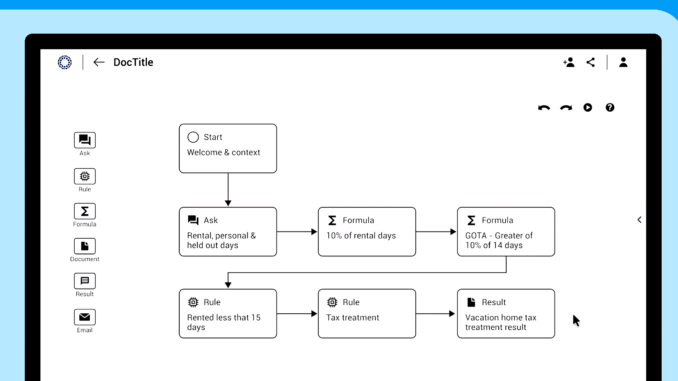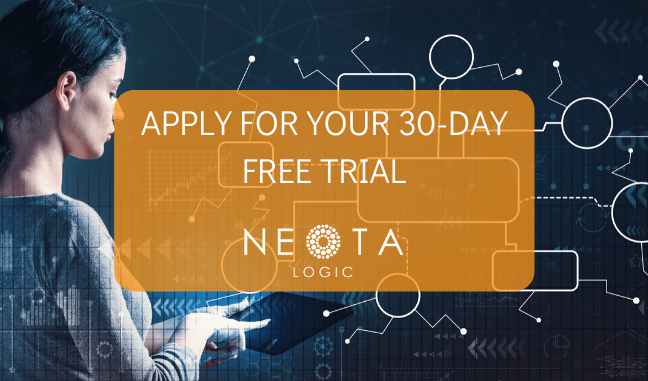
By Jackson Liu, Global VP Markets & Growth, Neota Logic
Learning to code has become a big thing for lawyers. For this, we can thank the explosion of interest in legal tech over the past four or five years. Quite rightly, legal educators and regulatory bodies have realised that technology is changing the practise of law and that people entering the profession with the right skills will quickly get ahead in the new world. But is coding really one of those skills?
Don’t get me wrong, I personally think, and in fact encourage, lawyers to code if:
- There is a clear benefit to their career, their practice area or their Firm in general; or
- It is something they are truly interested in. Not because it is the latest fad.
Promoting coding as an essential part of a professional skillset is misguided. In particular, it stems from an outdated view of the software tools available to lawyers with ambitions to be creative with technology.
Example? Look at a product developed by one of our customers. It’s an app to ensure that US academic campuses are Clery compliant. For non-US readers, this refers to the Jeanne Clery Disclosure of Campus Security Policy and Campus Crime Statistics Act, a tragically necessary federal statute requiring publicly supported colleges and universities to keep and disclose crime incidents on and near each campus.
The Clery Act also requires an Annual Campus Security Report (ACSR) to be submitted by October 1st of every year. The Neota Logic built app ensures compliance by collecting and collating data throughout the year from campus safety policies, automatic incident tracking systems and crime statistics and automatically drafting an ACSR for each campus.
It’s a sophisticated and extensive piece of software ensuring mission-critical compliance with a federal statute and it was all developed using Neota Logic’s no-code, rapid development platform.
Of course, not everyone will want to develop a solution of such sophistication. Where no-code really comes into its own is developing the Minimal Viable Product (MVP) which is the starting point for agile development.
This is where you ask: ‘What is the smallest thing you can build to do the job?‘ From there, you build the MVP, deploy it to the early adopters, test and iterate. Rinse and repeat until you get the final, production ready version.
For this, the ideal tool is our newly released prototyping tool, Canvas.
Canvas is a web-based product that enables subject matter experts to quickly and effectively turn their expertise into runnable applications. Canvas incorporates the legal engineering or processing mapping steps an expert would typically undertake when mapping out the logic of an application. It replaces third party processing mapping tools, to significantly streamline the way clients can turn ideas into runnable products.
Canvas requires no training and is a logical, intuitive product that allows users to ask questions, apply formulas and rules, and generate output reports or send emails to third parties. What’s the best part of Canvas? All Canvas outputs are fully ‘ingestible’ into Neota Logic’s main authoring platform – Neota Logic Studio for advanced functionalities (think database connections and integrations, advanced logic and reasoning) to be built out.
Our vision is that Canvas will be deployed entirely across an organisation, to give every employee, whether you are a lawyer, HR, procurement professional, etc. the chance to start prototyping ideas for automation. These prototypes are then put through an ideation funnel to select the best few, which is then handed to a separate team of trained and certificated Neota Logic architects to build out the solution in the Neota Logic Studio.
While learning to code definitely provides an advantage to understanding and even implementing legal technology solutions, don’t be afraid to explore what existing tools are out there already to help you on your journey. Who knows, it may make your job even easier!
Want to try out Canvas for yourself? Neota Logic is offering a free 30-day trial. Complete this form to apply.

[ Artificial Lawyer is proud to bring you this sponsored article by Neota Logic. ]
There’s a noticeable band of NoCode/LowCode tools aimed at the Legal sector including Neota Logic, Bryter, VisiRule, Josef and Berkeley Bridge. These vendors are attracted to the legal sector with its emphasis on logic and consistency, and also interpretation and human judgement which requires a ‘soft’ approach. They typically provide some sort of Decision Tree like modeling capability PLUS the ability to generate legal documents.